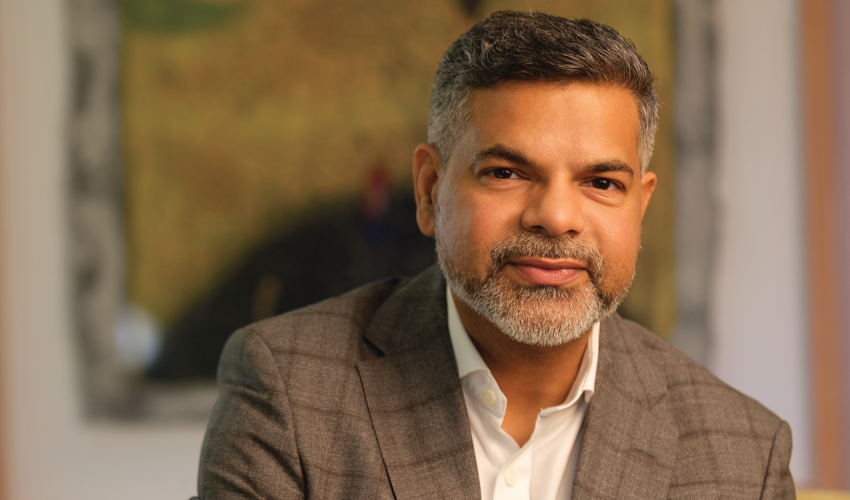Hossain Khaled is a titan of industry and a man of unshakeable family values. He is, first and foremost, known as the man at the helm of Anwar Group, which has changed the face of industrialization in this Country. He has overseen the Group’s enterprises in sectors ranging from textiles to automobiles, and he has always kept his eye on the big picture, with a view towards sustainability. He is the son of pioneering industrialist Anwar Hossain, and as such, not only does he have the great task of carrying that torch forward, but also forging his own path as an entrepreneur very much according to his own values. At the heart of his family values is the idea everyone at a company should be treated with respect and transparency, from stakeholder to customers, and from CEO to security guard. As such, in spite of an emphasis on performance and continuous learning, the family ethos remains central to this visionary
By Anika Chowdhury
A scion of industry, a champion of innovation, and a committed community leader – these titles merely scratch the surface of who Hossain Khaled is. On a brisk morning, the MWB team made their way to his once at City Bank in Gulshan, eager to delve into the story of a man whose career is marked by a visionary approach to leadership and a relentless pursuit of excellence. He stands at the helm of Anwar Group, steering it through sectors as varied as textiles, building materials, construction & real estate, home decor & furniture, financial services, and automobiles with a steady hand and an eye towards sustainable progress. Today, we share insights from a conversation that offers a glimpse into the mind of a man who is as much a custodian of his family’s legacy as he is a pioneer in his own right.
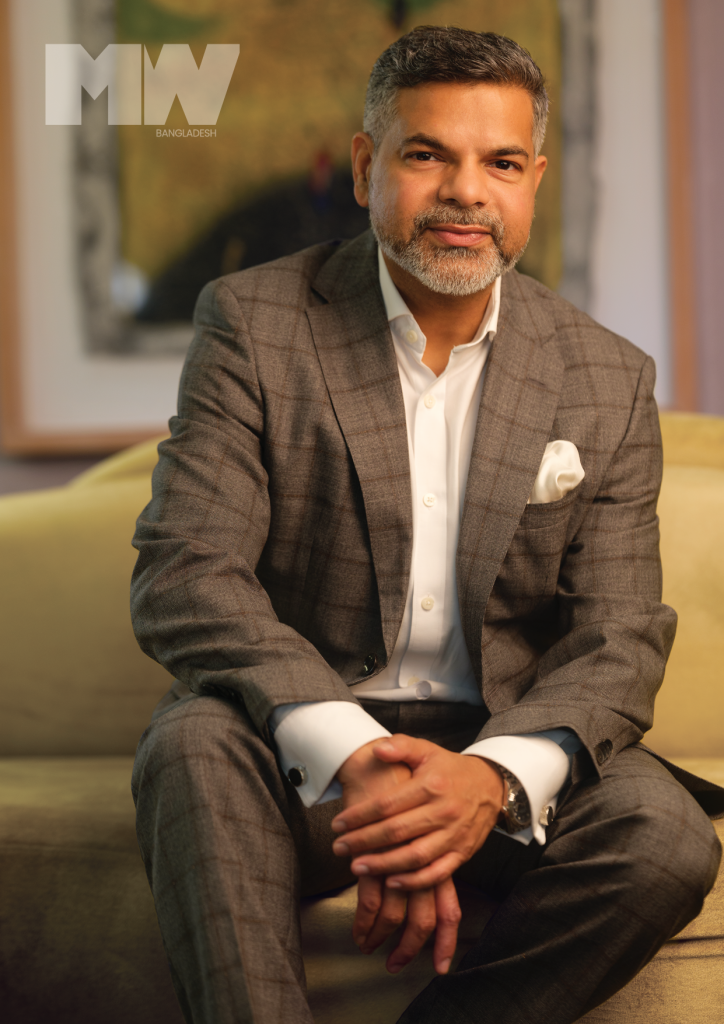
Growing up in a joint family, what are some cherished memories that have shaped who you are today?
I have fond memories of my father. He has been that shining nightingale for the whole family –not only for us but for our entire extended family and the business community in general. He has been a very integral link in the family, holding everyone together and taking care of everyone. He always made sure that he had enough time amidst his busy schedule so for his extended family, and in his absence it would always be my mother holding the fortress. We must learn to instill empathy as our core purpose in life and always take care of our family, our extended family, our neighbors, and of course our employees. Together leaving a mark on our society.
And I believe he kind of lived by that. He always made sure that people around him – especially those who were maybe financially a little challenged – that he tried to look out for them and look for ways to help them become self sufficient.
The way my father lived his life inspired me a lot. I learned how to grow collectively as a unit. I have never seen my father call his employees ‘kormocharis’. He always treated them with love and respect and as extended family. He never claimed to employ14,000 people; instead, he would always address them as a family of 14,000 members. He believed, every individual is born with purpose, and his was to create employment.
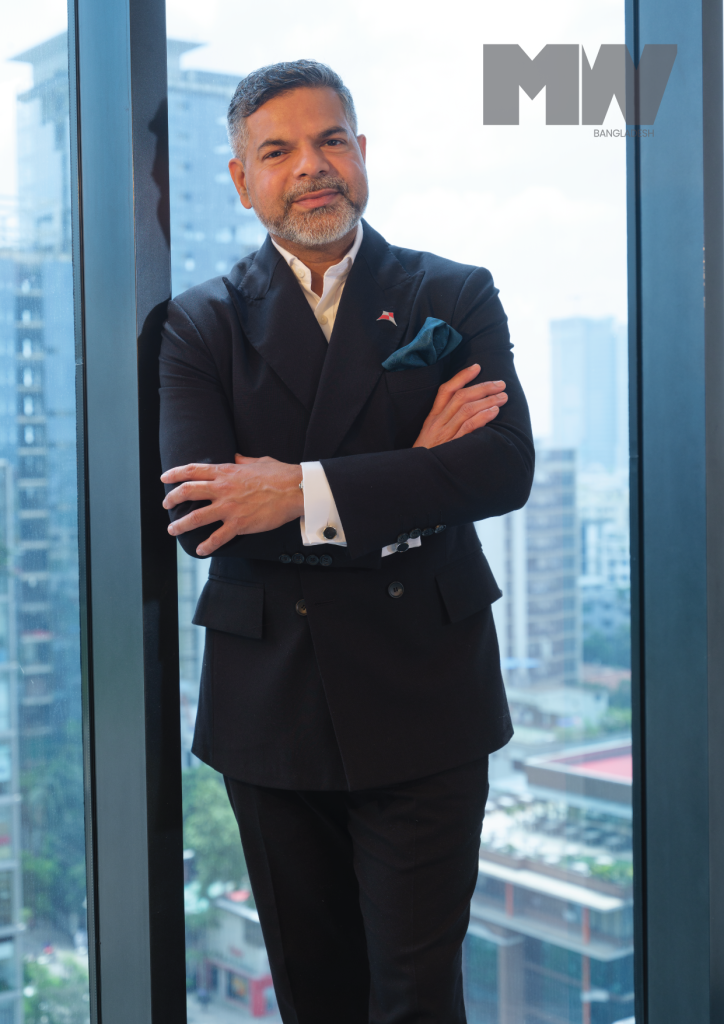
Fast forward to today, we continue our effort in a lot of charity and corporate social work nationwide. As a Dhakaiya, our focus has remained in development in parts of Old Dhaka with an emphasis on education, vocational training, and healthcare. As a family value we have been taught that giving back to the community is not charity, rather our responsibility. We have personally been encourage by our father to take part in relief distributions during flood or any natural disaster from a very young age, this certainly helped us develop the mindset of altruism.
We are the fourth generation in the family business and the fifth generation is currently taking the helm. And a new generation of leaders are being trained with a similar mindset – finding their purpose in life through giving back to the people to the community.
In your interviews, you mentioned your parents would give you a fixed budget for everyday expenses. So, are there any lessons from your childhood that you still apply in your personal and professional life today?
From an early age, I had to work for my pocket money, which I’ve mentioned in several interviews. I began my practical education in managing finances and understanding business as a transport officer. My responsibilities were not just nominal; they involved genuine duties like ensuring the correct mileage at the petrol pump, verifying driver activities, and maintaining the vehicle conditions before heading to school. I vividly remember balancing these tasks with school commitments, starting my day early, around 6:30am, to accommodate both school and work duties. This routine wasn’t just about earning money; it was about instilling a sense of duty, responsibility, discipline and understanding the nuances of operations from the ground up. As I grew older and took more responsibility at work, I spent considerable time verifying the quality and prices of supplies for our businesses – from stationery to raw materials which needed to be meticulously checked. This hands-on experience at such a young age taught me the importance of detail and the value of hard work and respecting processes across all levels of an organization.
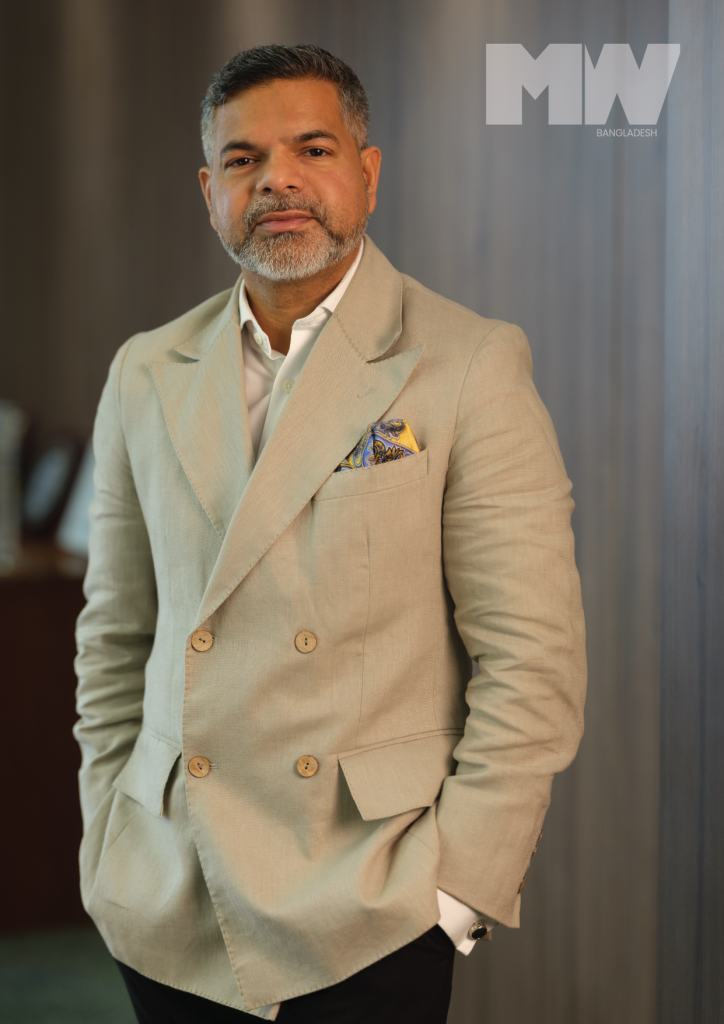
It was not only me – my siblings also gained the same experience so that we could learn what the job is actually about even when we are sitting at the top. By the time, we graduated and took over responsibility in the company, a lot of these people who were working with me or teaching me on the job were now taking pride that they had worked with me or even helped me learn process or procedures at work place.
These early experiences shaped not only my work ethic but also provided a deep understanding of various aspects of business operations. And now, I try to impart the same lessons to my children as well.
What philosophies and values do you follow in your leadership style?
I always believe in working with people who are smarter than me. You see, after all these years, we are still a family and I believe, with time, the market has grown exponentially competitive. So, I always emphasize the importance of each individual in our organization being more knowledgeable and capable than myself in their respective roles. This belief drives even our on-boarding strategy. We aren’t just filling positions, but are on a constant quest to find individuals who bring innovation, energy, and a greater depth of understanding to our operations.
I often say: “We need to trust that the people we bring on board can actually teach us something new.” This approach ensures that we are not just a company but a learning organization where continuous improvement is embedded in our DNA. Despite the broad range of our business interests, the strategy remains consistent: empower those who manage our business units with the autonomy to lead effectively. This decentralization allows us to remain nimble and responsive in a highly competitive market.
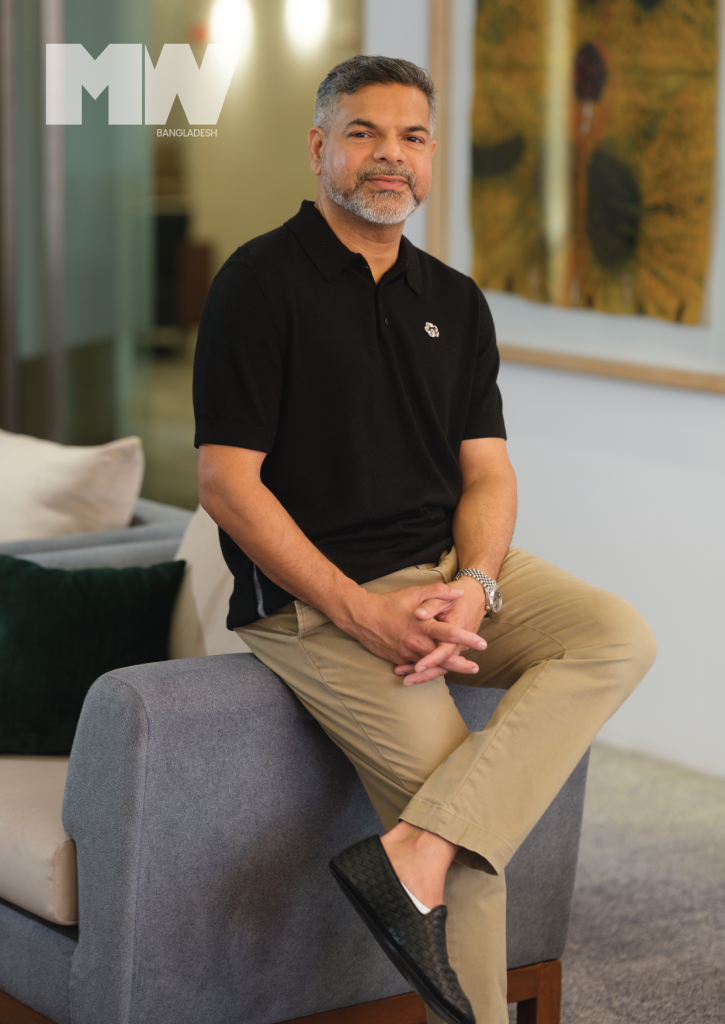
Moreover, our competitive spirit is not about outpacing each other but about each unit and individual within the Anwar Group striving to perform at their best. We believe that by nurturing confidence and competence in our team, we instil a spirit of collective achievement. This not only drives our business forward but also ensures that our team members are stakeholders in our success, which is vital for a conglomerate with such varied interests.
In essence, the core of my leadership style is fostering an environment where the strategic direction is clear, performance is paramount, and continuous learning is the norm, all while maintaining the close-knit familial ethos that has been our foundation from the start.
After the turbulence of the past few months, Bangladesh finds itself in uncharted territory. What, in your opinion, is needed to ensure a stable environment for sustainable development?
In the wake of recent upheavals, Bangladesh stands at a crucial juncture, poised for a path that demands astute good governance and robust economic strategies to foster a stable environment conducive to sustainable development. The complexities of our situation are intertwined with factors beyond the direct control of businesses, residing instead within the purview of governmental policies and international economic dynamics. It is very important to understand the risks in business. It is important to realize that in business, risk is paramount. Not just the risk of something bad happening, but also the risk of something good not happening – the opportunity cost or the risk of missing out on something good.
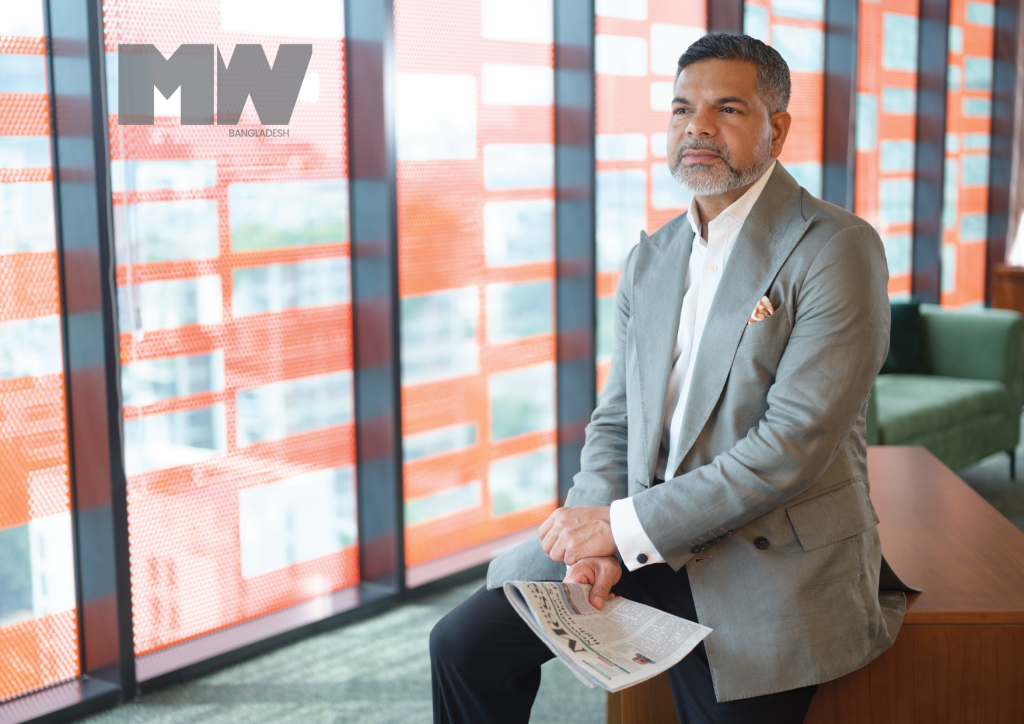
In my opinion, addressing inflation is imperative. The persistent instability of the dollar a ects every facet of our economy, from the cost of food to raw materials to the financial health of our export sectors. Stabilizing the currency will provide a more predictable business environment, crucial for long-term planning and investment. Moreover, fostering an environment that attracts foreign direct investment is essential. Over the past decade, our efforts to draw substantial foreign investments have faltered, resulting in missed opportunities for economic expansion and job creation. A strategic overhaul focusing on enhancing the ease of doing business, reducing costs of doing business, streamlining bureaucratic processes, and ensuring transparent and enforceable policies can reverse this trend. This includes addressing the high tax burdens, and a mere 1.5% of tax paying population that inadvertently foster a grey economy, as businesses struggle with uncompetitive fiscal demands.
The government’s role in crafting a conducive economic landscape cannot be overstated. This involves not only creating favorable tax regimes but also investing in infrastructure that supports both existing and emerging industries, including the sustainable utilization of natural resources like natural gas, which remains under-leveraged.
In terms of employment, transforming our large workforce into a skilled one is critical. With nearly 40% of our population underemployed, comprehensive vocational training programs are essential in creating jobs domestically and overseas. Viewing our population not just as numbers but as a collective force of “340 million hands” ready to uplift the economy reflects a mindset shift from liability to asset.
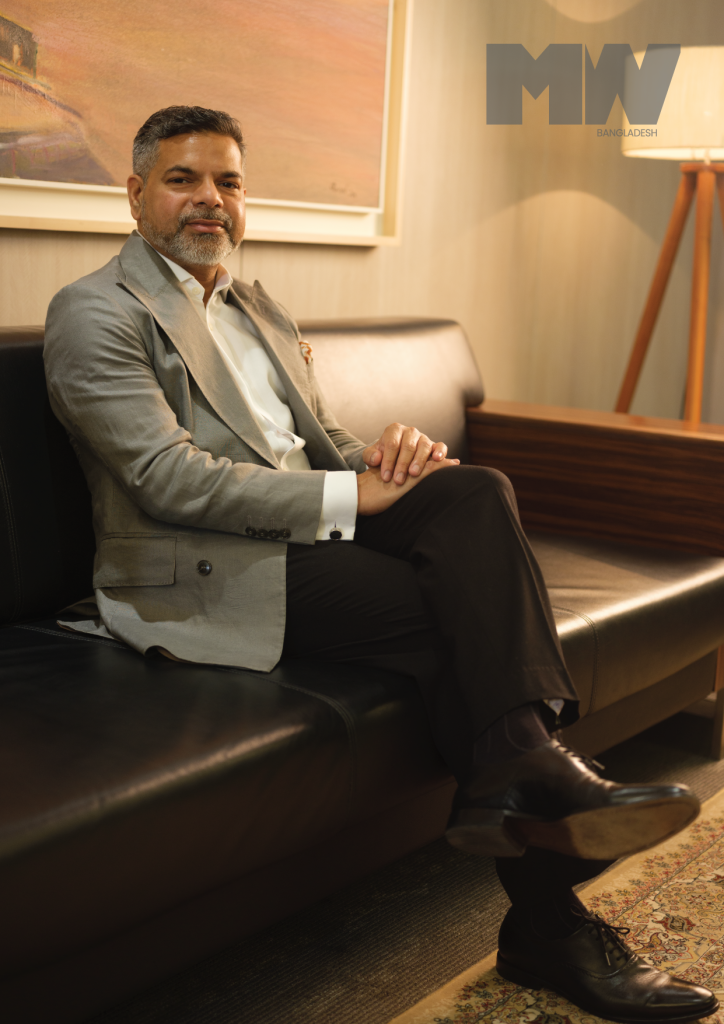
On the international stage, while competition with giants like China and India is formidable, Bangladesh must strive to carve out niches where it can excel, particularly in industries like garments, where adding value has proven successful. The strategy should not solely focus on competing but also on synergizing and complimenting the capabilities of these economic powerhouses.
In conclusion, the journey towards a stable and sustainable developmental path for Bangladesh requires a multifaceted approach: stabilizing the economy through strategic financial policies, creating a favorable business environment, harnessing the potential of foreign direct investments, and empowering the workforce. These steps, guided by a government committed to transparency and e ciency, will pave the way for a prosperous future.
Not only in Bangladesh but overall, the global market is continuously evolving. How is Anwar Group preparing to adapt to these changes?
Our approach is grounded in a desire to see development from the ground up – much like watching clay become pottery or the foundational steps in real estate development. This passion for building and evolving is a driving force as we navigate through the complexities of international competition and an expanding global market. Understanding that many factors affecting our business are beyond our direct control, such as currency fluctuations which are often governed by broader economic policies, Anwar Group focuses on what we can influence directly.
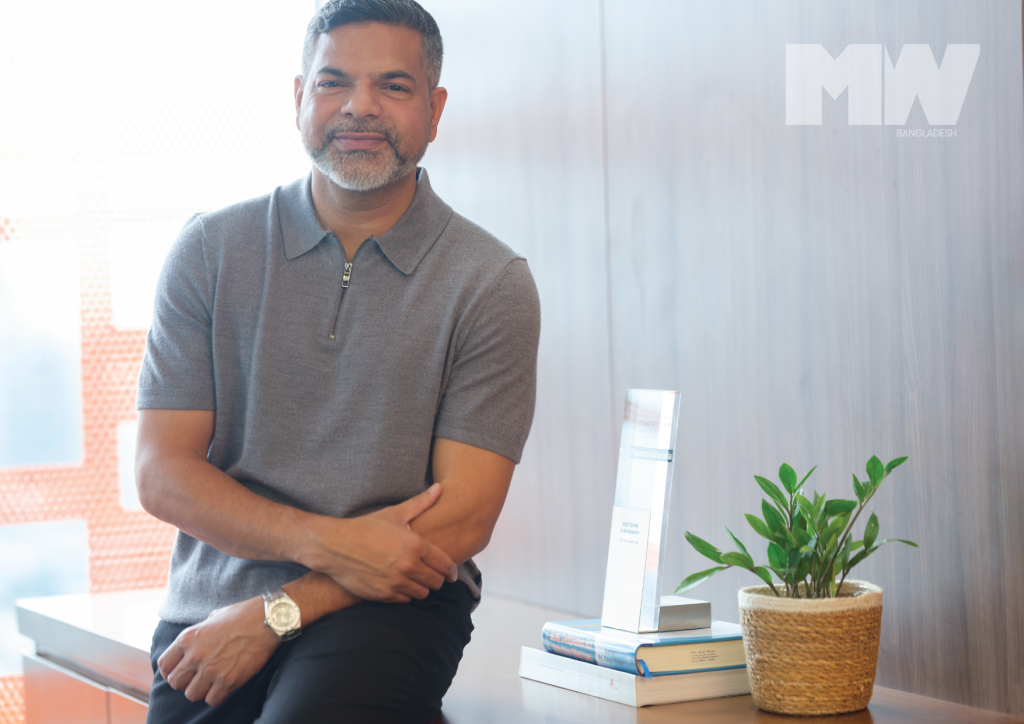
For instance, we invest heavily in sectors where we can see tangible growth and development, leveraging our deep interest in areas like manufacturing, construction, technology, and financial services. This is primarily due to the lack of a robust automotive policy and the absence of a developed secondary market from imported or locally assembled new vehicles. The majority of vehicles in our market are used imports, which undermines the potential for a thriving secondary market. A vibrant secondary market is essential for reducing dependency on used-imports and fostering an ecosystem where cars retain more intrinsic value.
Moreover, the lack of local assembly and manufacturing facilities further exacerbates this issue. Unlike in neighboring countries, where policies have spurred the growth of local
automotive industries, Bangladesh has yet to see such developments. This lack of local production limits our market to handling only a fraction of the potential volume, evidenced by the mere handful of cars produced annually compared to the demand.
The path forward for Bangladesh should involve strategic policy implementation that encourages both the establishment of local automotive manufacturing and the creation of a
conducive environment for the secondary market. By incentivizing original equipment manufacturers to set up local production, we can stimulate job creation and develop a complete automotive ecosystem. This approach not only addresses the needs for local consumption but also integrates Bangladesh more deeply into the global automotive supply
chain.
To truly transform our automotive industry, a comprehensive and forward-thinking policy framework is essential. This framework should support innovation, reduce barriers to entry for local production, and promote sustainability in automotive practices. As we advance, our focus must be on creating policies that not only keep pace with global trends but also cater to the unique needs and potentials of Bangladesh’s market. Innovation in automotive industry in this era has seen the shift from combustion engine to electric and now to hydrogen. It is no longer just about mobility, but also connectivity. I am proud to be a part of this exciting era who are seeing the fruition of technologies visioned in Star Trek and Knight Rider come to reality.
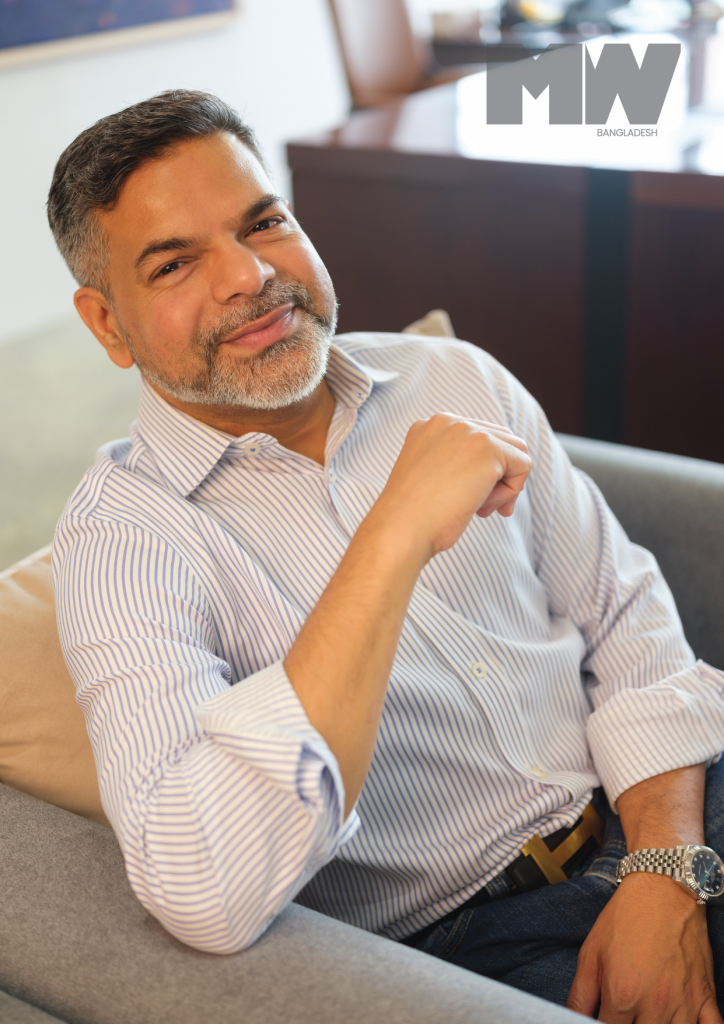
With such a demanding role, how do you manage your personal time, and what activities do you find most fulfilling outside of work?
Soul, Mind, and Body. For me, being fit means having a sound mind and healthy body as well as staying spiritually fulfilled. So, I focus on three aspects. I have always had a keen interest in sports, particularly football, which I played avidly until commitments reduced my playing time. Now, my physical activity is largely centred around regular visits to the gym.
I find that maintaining a consistent exercise regimen not only keeps me fit but also sharpens my mental focus and keeps me disciplined. On a typical day, I ensure to walk at least 10,000 steps and dedicate another hour to a mix of cardio and weight training. However, my approach to weightlifting is not about being muscular but maintaining overall fitness and strength. Physical strength plays a vital role in enhancing one’s health, and good health fosters spiritual and mental well-being, creating a positive loop of wellness. This holistic view of health is deeply tied to my spiritual practices as well. I find that my physical activities complement my spiritual practices, which include meditation and following the teachings of my religion. These practices provide me with a sense of direction and purpose, reinforcing my values and guiding how I live and work. Moreover, I believe in the philosophy of caring for the mind as much as the body. Meditation is a regular part of my routine, serving both as a tool for mental clarity and as a form of spiritual practice. It helps me to stay balanced amidst the pressures of work and personal life.
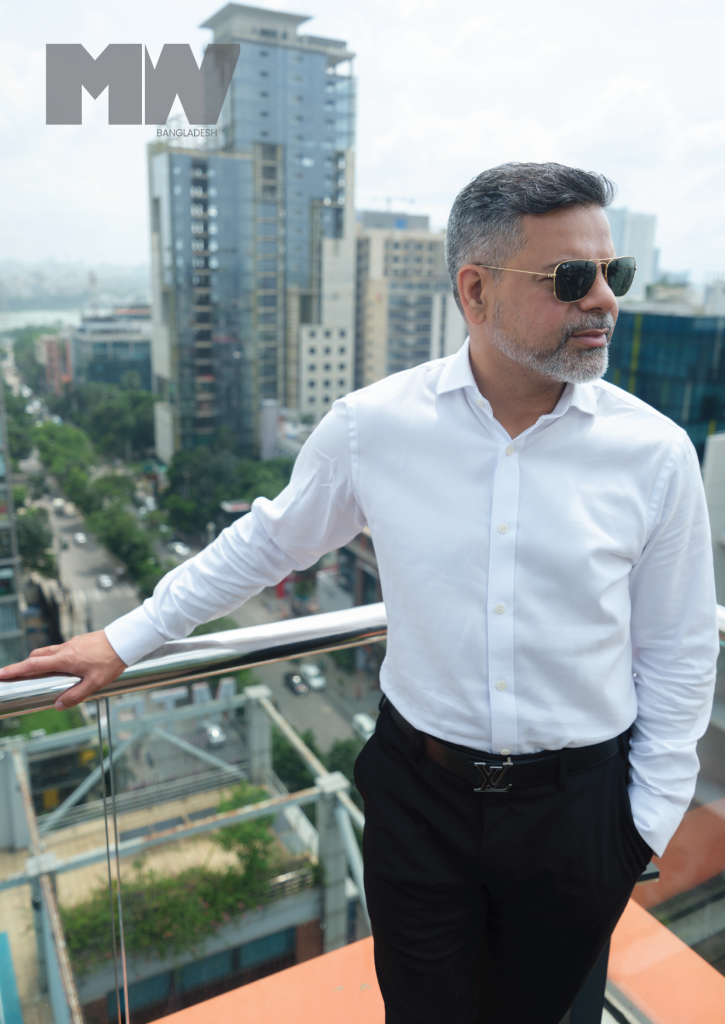
Beyond the confines of personal health, I extend my philosophy of care to my community. Following the teachings that emphasize kindness and responsibility towards one’s neighbors and business community, I strive to contribute positively to the people around me. This sense of community service is integral to my life, enhancing my connection with others and enriching my own spiritual journey.
In essence, my approach to managing a demanding role is grounded in a commitment to personal health, spiritual growth, and community engagement. These elements are crucial not only for personal fulfilment but also for sustaining the energy and perspective needed to handle professional responsibilities effectively. It’s about continuous growth, learning, and adaptation, ensuring that both personal and professional lives are not just balanced but also deeply interconnected and mutually enriching.
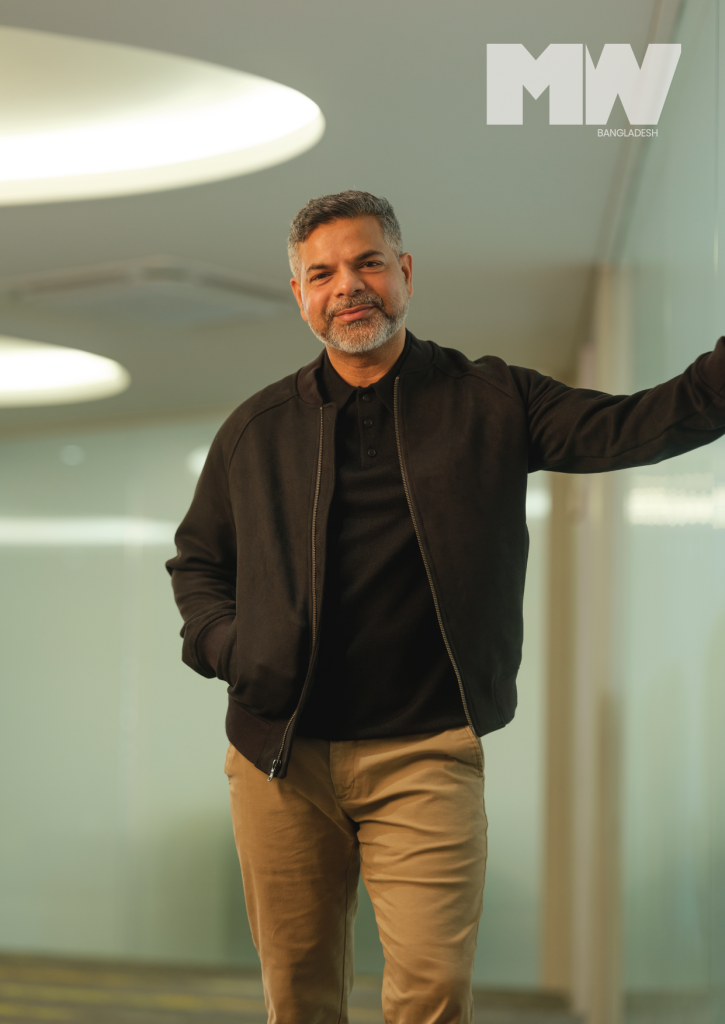
What advice would you give to the next generation of entrepreneurs?
To the next generation of entrepreneurs, my advice would be to focus on yourself. Be passionate. And don’t forget yourself and your personal growth. Your business venture is a reflection of your own capabilities, discipline, and passion. However, passion alone isn’t enough to ensure success in the competitive business landscape. Most importantly, try to find happiness within yourself rather than depending on others to provide it to you. And as I always say: “Surround yourself with people who are smarter than you.”
What are your personal and professional goals for the upcoming years?
I yearn to leave a mark before I retire, create the next hierarchy of leaders in the family and at work place, continue to live a meaningful life with purpose, spend time traveling and exploring with family and friends, and meeting new people.




